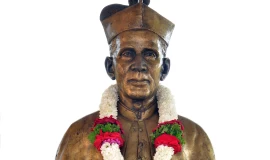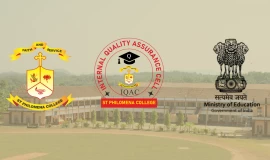
About Us

St Philomena College was founded by Msgr Antony Patrao who felt that a College in this part of the state would save the people of the inconvenience of moving to distant places for higher education. He set out to realize his dream and the mission was accomplished in the year 1958.
The Institution
Vision, Mission & Objectives Origin & History Milestones Emblem The Patron The Founder Former Correspondents Former PrincipalsThe Management
Organogram of the Institution Top Management – CBE Local Management Committee The CorrespondentCourses Offered

Since its inception, the Institute has lived up to societal expectations, turning out consistent and appreciable results in academic and non-academic fields. The institution does attempt to treat the primary stakeholders in 5 UG programs and 5 PG programs with a rewarding educational experience.
Office of the Registrar
Registrar Academics Regulations Curriculum Framework Syllabus Academic CalendarFramework

The Quality Assurance Framework of the institution has been developed to assure academic standards and enhance the quality of education. It underlines the institution’s commitment to excellence and improvement.

